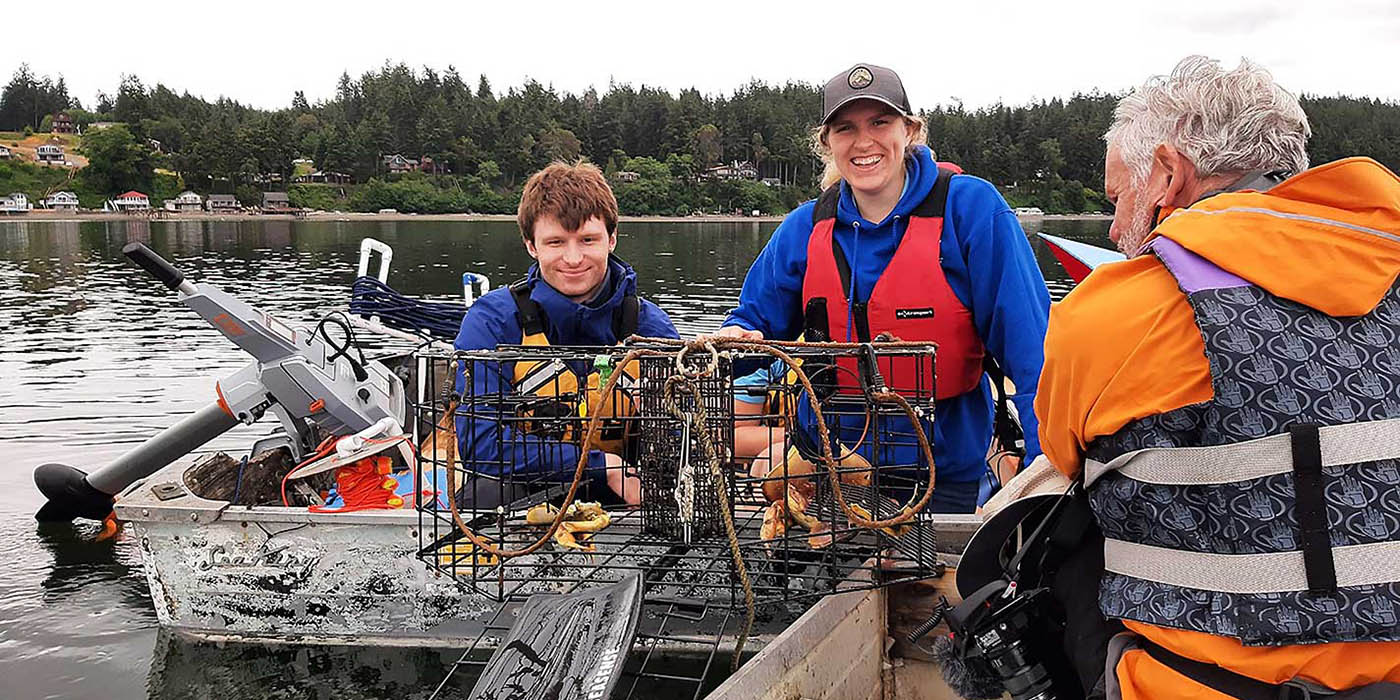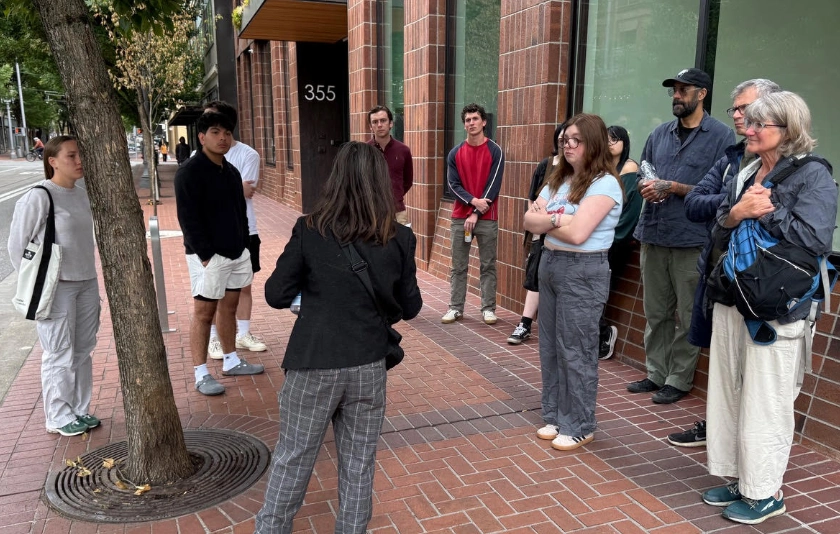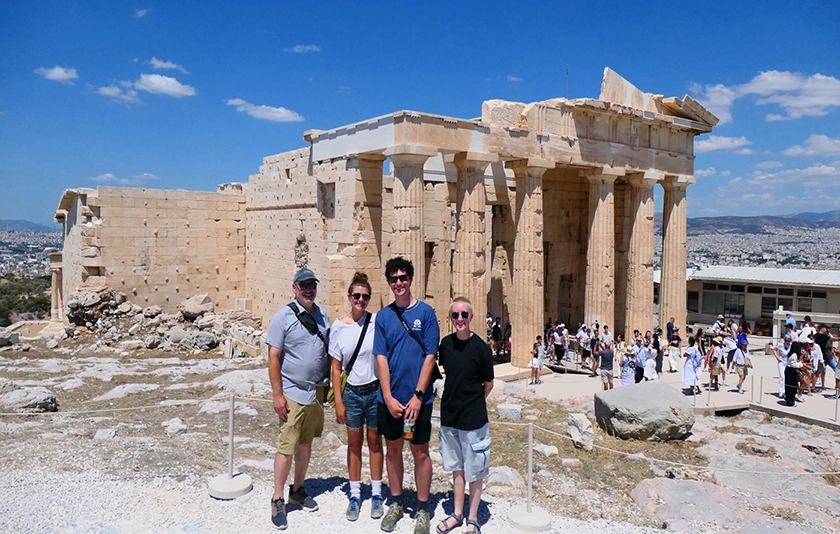Roughly 12,000 crab traps are lost each year in the waters off Washington State, killing nearly 200,000 crabs. These so-called “ghost pots” are death traps for crabs, which then lure other sea creatures to their deaths. This not only decreases yield for crabbers, it means less food for seals and otters, thereby harming coastal ecosystems.
This ecological dilemma intrigued two Willamette sophomores (both Environmental Science and Archaeology double majors), Ella Ashford BS‘25, BA‘25 and Riley Forth BS‘25, BA‘25, who sought to solve it with the help of a College Colloquium Student Research Grant. With the help of Mandy Devereux and Geoff Dejanvier at the Office of Career Development and Haiyan Cheng, professor of computer science, Ashford applied for the grant and won it.
She and Forth did their research project last summer in partnership with the Jefferson County Marine Resources Committee and The Sea Dragons, a student-run robotics team based in Port Townsend, Washington. Environmental Science professor Scott Pike, the research advisor for this project, provided support and suggestions throughout the fieldwork process and helped the duo borrow GPS equipment from the Environmental Science Department to use for this project.
“Existing solutions to this problem are expensive to coastal communities,” Ashford says. “You have to do extensive surveying—it’s like finding a needle in a haystack.” Until recently, recovering ghost pots relied on divers, which require costly insurance policies. There’s also a limit to how deep a diver can go. During their time on the Salish Sea, both students operated underwater robots—called a remotely operated vehicle or ROV—to remove the pots. Unlike humans, ROVs can reach depths of 200 feet.
As the GIS Project Manager, Forth used sonar data and GIS (something she’d learned at Willamette), to map the locations of the pots. All together, the team located seven pots and recovered three of them during a two-day expedition but four of them were covered in sea anemones. “They were less death traps and more an artificial reef,” Forth says. They chose to leave these pots behind and will be exploring this exciting discovery in their future research.
The duo will continue their research this summer with an NOAA Ocean Exploration Education Grant.
Pike says Ashford and Forth are both exceptional students. “Quite honestly, I didn’t do very much—they had it all under control,” Pike says. “They are very driven and very focused!”
UPDATE (Jan. 2024): Ashford and Forth's project was recently named the student winner of the Esri ArcGIS StoryMaps Competition. The global competition invites "storytellers worldwide to create place-based stories about conserving the earth’s lands and waters." You can read the award-winning story.



